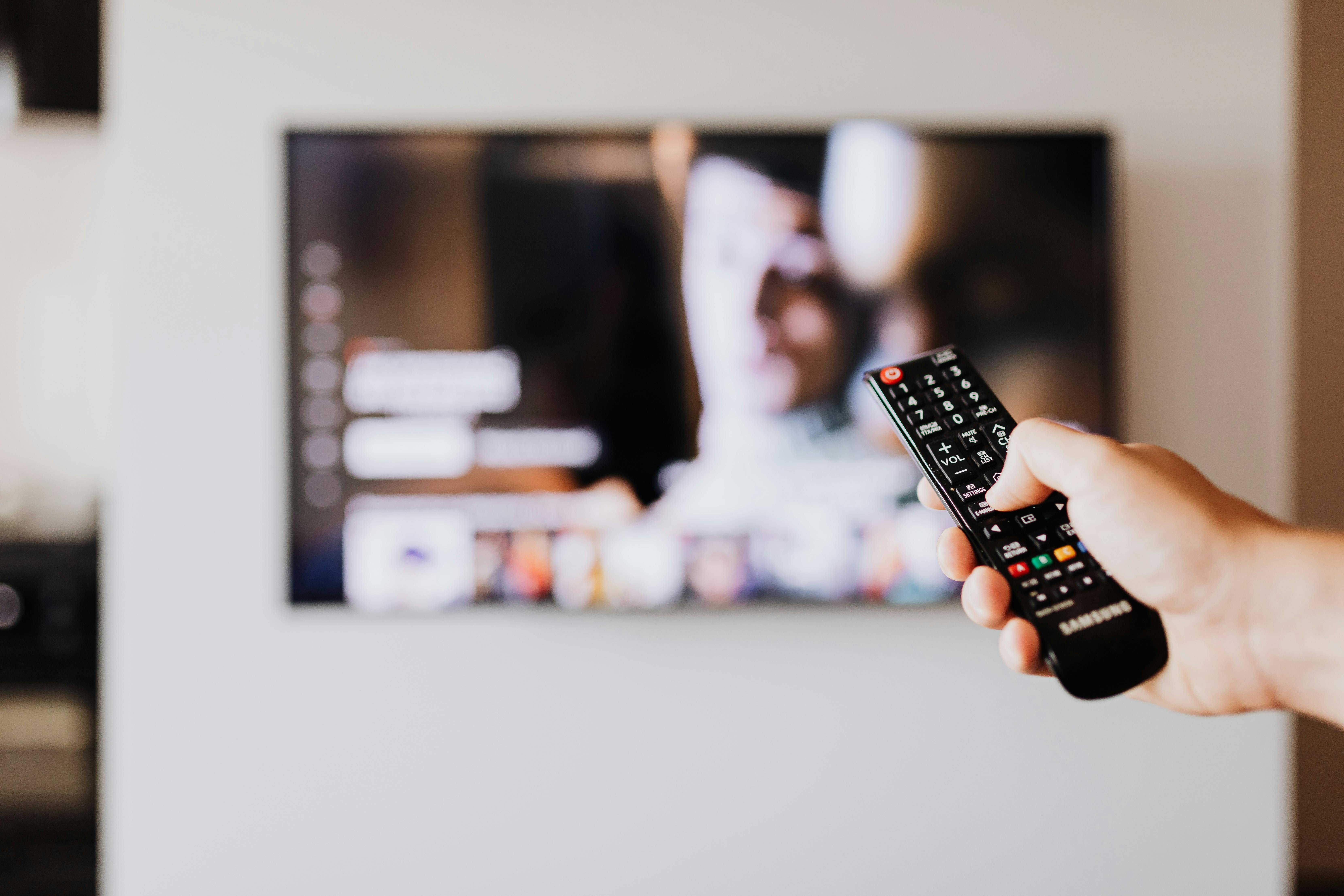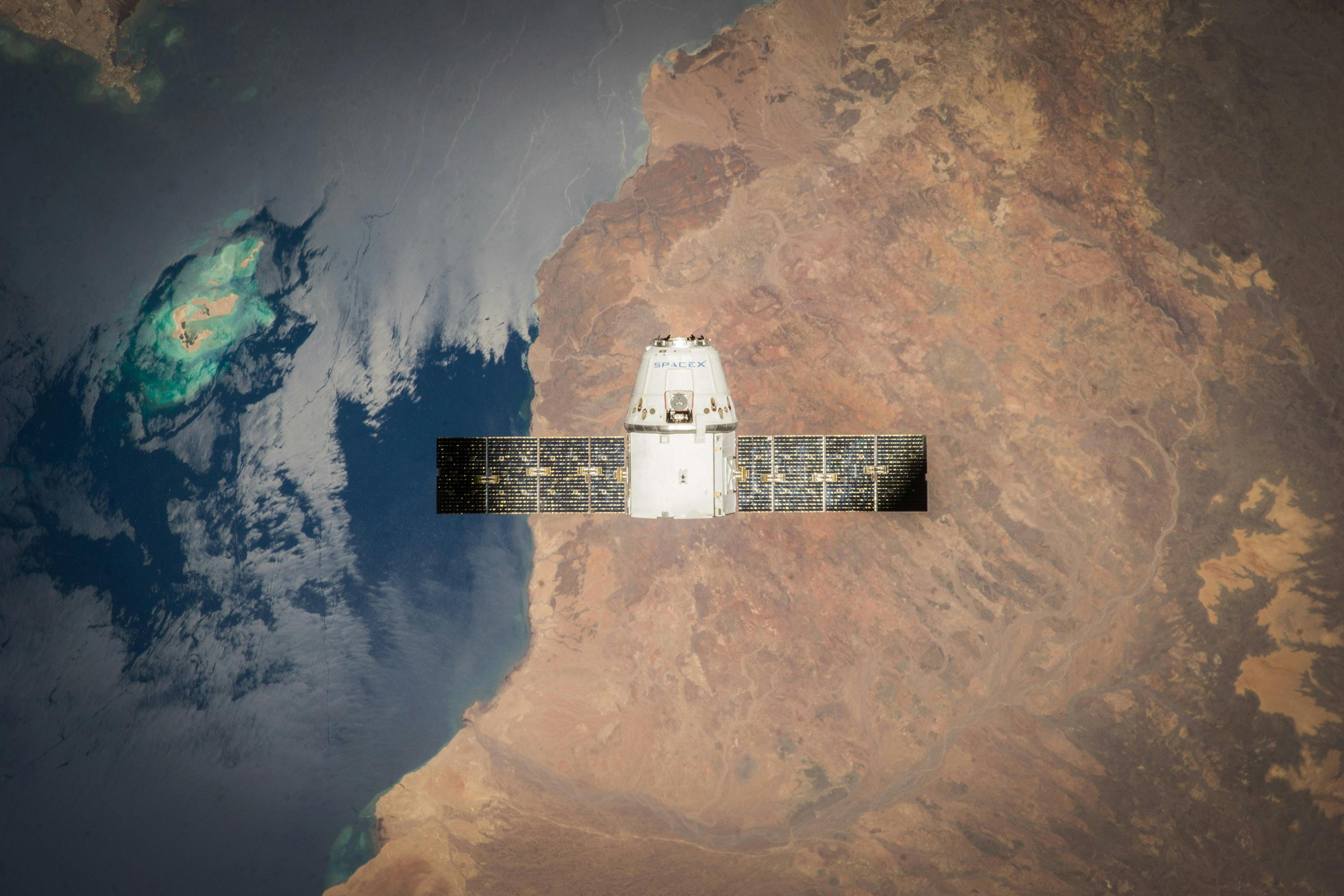Find out why AT&T DirecTV is losing local channels and explore alternatives like Spectrum and Xfinity for uninterrupted TV service
15 November, 2024 | Posted by: Pablo Mendoza
Category: News | No Comments

Recently, many AT&T DirecTV subscribers have been frustrated by losing access to local channels due to ongoing disputes between the satellite TV provider and local broadcasting networks. These blackouts have left customers without access to important local news, sports, and entertainment. If you’re an affected customer, you’re probably wondering what your options are moving forward.
In this article, we’ll discuss why AT&T DirecTV is losing local channels, how long this might last, and what alternatives you have for uninterrupted TV service. We’ll also provide links to alternative TV providers, including Spectrum and Xfinity, as well as streaming options that can keep you connected to your favorite shows.
The loss of local channels on DirecTV is due to ongoing negotiations between AT&T and local broadcasters. These blackouts are typically caused by disputes over retransmission fees, which broadcasters charge TV providers to carry their channels. When negotiations break down, broadcasters may pull their channels from DirecTV, resulting in a blackout for subscribers.
Unfortunately, these types of disputes are not uncommon. Recently, similar issues have affected other providers, such as Dish Network and Cox Communications. As negotiations continue, affected customers are left without access to important local programming, including local news and sports.
It’s hard to predict exactly how long the blackout will last, as negotiations between AT&T and local broadcasters are ongoing. Some blackouts last just a few days, while others can stretch for weeks or even months. If you rely on local channels for news and entertainment, this can be highly inconvenient.
During these blackouts, it’s important to explore other ways to access your favorite channels. Some customers may want to consider switching to a provider that still offers the missing local channels or exploring streaming services that carry local networks.
If you’re tired of losing access to your favorite local channels, switching to a different TV provider may be the best solution. Here are some top-rated providers that can offer reliable TV service without the frequent blackouts:
Spectrum is known for its affordable TV plans and reliable service. Spectrum offers a wide variety of local channels, plus access to premium networks like HBO and ESPN. With no contracts and no extra fees for HD service, Spectrum is a great choice for customers looking to avoid the frequent disputes that come with satellite TV.
Best Spectrum TV Plan:
Xfinity is another popular alternative to satellite TV, offering customizable TV plans and reliable service. Xfinity’s X1 platform allows you to stream your favorite shows across all devices, ensuring you can keep up with your local news and entertainment, even during blackouts. Plus, Xfinity’s bundling options make it easy to combine TV and internet for a better deal.
Best Xfinity TV Plan:
Switching to streaming services is another option if you're dealing with local channel blackouts. Here are a few popular streaming options that offer live TV, including local channels:
Hulu + Live TV offers a robust selection of local channels, along with access to Hulu’s vast on-demand library. For $69.99/month, you get access to live streaming of local news, sports, and entertainment from networks like ABC, CBS, NBC, and FOX.
Check out Hulu + Live TV for more details on channels and pricing.
YouTube TV is another excellent streaming alternative, offering over 85 channels, including local networks, for $64.99/month. You’ll also have access to unlimited DVR storage, allowing you to record your favorite shows and watch them later.
Learn more about YouTube TV and its features.
If you’re currently experiencing a local channel blackout with DirecTV, here are some steps you can take:
AT&T DirecTV losing local channels is frustrating, but there are plenty of alternatives to keep you connected to your favorite local programming. Whether you choose to switch to a different provider like Spectrum or Xfinity or opt for streaming services like Hulu + Live TV or YouTube TV, there are options to ensure you don’t miss out on the news and entertainment that matter most.
If you’re ready to switch providers and restore your local channels, compare TV providers today and find the best plan for you.
The FCC fined AT&T $13 million for a data breach affecting millions of customers. Learn more about how to protect your data and explore secure internet providers
15 November, 2024 | Posted by: Pablo Mendoza
Category: News | No Comments

In a significant ruling, the Federal Communications Commission (FCC) has fined AT&T a whopping $13 million for a data breach that exposed sensitive customer information last year. The breach, which affected millions of AT&T customers, has raised concerns about data privacy and security, particularly when it comes to choosing reliable internet providers.
This article will dive into the details of the data breach, the FCC’s fine, and what it means for AT&T customers. We'll also discuss how you can protect your personal information and compare AT&T with other secure internet providers like Xfinity and Spectrum to ensure you’re making the safest choice for your online security.
In early 2023, AT&T experienced a massive data breach that compromised the personal information of millions of customers. Hackers gained access to sensitive customer data, including names, addresses, and account information, leading to widespread concern about the security practices of one of the country’s largest telecommunications companies.
The FCC launched an investigation into the breach, and in 2024, they issued a $13 million fine to AT&T for failing to adequately protect customer data. According to a report from Broadband Breakfast, the FCC found that AT&T violated federal privacy laws and failed to implement proper security measures to prevent the breach.
While the $13 million fine is a step toward accountability, it may leave some AT&T customers feeling uneasy about their data security. If you’re an AT&T customer or considering their services, it’s important to understand how this breach impacts you and what steps AT&T is taking to improve its security practices moving forward.
AT&T has committed to enhancing its data protection measures in the wake of the breach. However, this incident serves as a reminder to consumers to always be vigilant about their personal data security, no matter which internet provider they use.
Data breaches can happen to any company, which is why it’s essential to take proactive steps to protect your information. Here are a few tips to help keep your data secure, whether you're using AT&T or another provider like Xfinity or Spectrum:
If you're concerned about security after the AT&T data breach, it may be worth considering other internet providers that have strong security measures in place. Here’s a quick comparison of AT&T, Xfinity, and Spectrum in terms of data security and reliability:
AT&T Fiber offers some of the fastest speeds available, with plans up to 5 Gbps. While the data breach was a major setback for the company, AT&T has since committed to improving its security infrastructure to prevent future incidents.
Best AT&T Plan for Security:
Xfinity is known for its fast speeds and reliable service, with plans up to 1.2 Gbps. Xfinity also offers excellent data protection measures, including two-factor authentication and advanced encryption protocols to safeguard customer data.
Best Xfinity Plan for Security:
Spectrum offers speeds up to 1 Gbps with no data caps and no contracts. Spectrum is also committed to strong data privacy policies and offers secure browsing options to protect customer information.
Best Spectrum Plan for Security:
The AT&T data breach and the subsequent FCC fine serve as a wake-up call for consumers and internet providers alike. While AT&T has taken steps to improve its security measures, it’s important to stay vigilant about protecting your data, regardless of which provider you use. By choosing a provider with strong security features and following best practices for data protection, you can minimize the risk of a breach and keep your information safe.
If you’re looking to switch to a more secure internet provider, besure to compare the security features, speed, and reliability of providers like Xfinity, Spectrum, and AT&T. Each provider offers a variety of plans that can meet your speed needs while also ensuring your data is secure.
Ready to upgrade to a more secure and reliable internet plan? Explore the best options and protect your personal data while enjoying fast speeds. Here are some top deals you can take advantage of right now:
The FCC’s $13 million fine against AT&T is a reminder of the importance of data security in today’s digital world. While AT&T has promised to improve its security infrastructure, it’s essential for customers to take their own steps to protect their data. By choosing an internet provider that prioritizes security and implementing best practices like strong passwords and two-factor authentication, you can help safeguard your personal information.
If you’re ready to switch providers or upgrade your current plan, be sure to explore the options from Xfinity, Spectrum, and AT&T to find the best fit for your needs. Whether you’re focused on speed, reliability, or data protection, these providers offer plans designed to keep you connected and secure.
Discover the fierce rivalry between Jeff Bezos’ Project Kuiper and Elon Musk’s Starlink in the battle for satellite internet supremacy. Explore the key features, differences, and future of global broadband in this entertaining comparison
23 October, 2024 | Posted by: Pablo Mendoza
Category: News | No Comments

The rivalry between Jeff Bezos and Elon Musk has gone beyond Earth, expanding into the skies as both billionaires vie to dominate the satellite internet space. Bezos’ Project Kuiper and Musk’s Starlink are both setting the stage for the future of global connectivity, each with its unique strengths and challenges. While Musk’s SpaceX has a head start with Starlink, Bezos is throwing down the gauntlet with Amazon’s Kuiper project, promising to deliver high-speed internet worldwide. Let's dive into the key aspects of each satellite internet system, the growing rivalry, and the impact they’re expected to have on the future of global broadband.
Bezos’ Project Kuiper, backed by a $10 billion investment from Amazon, aims to launch more than 3,200 satellites into low Earth orbit, promising to deliver high-speed internet to underserved regions globally. The project has recently secured major licenses and is on track to begin offering services as early as 2025.
On the other hand, Elon Musk’s Starlink, a part of his SpaceX venture, already has a significant lead. Starlink currently operates with over 6,000 satellites in orbit, and it has been providing commercial services since 2019. Starlink’s expansion has been rapid, with services already available in over 50 countries, and Musk has plans to launch up to 42,000 satellites.
The Bezos-Musk rivalry is no secret, with both billionaires often engaging in public spats. Musk once quipped that Bezos’ space endeavors were "years away" from being able to compete with Starlink. Bezos, in turn, accused Musk of trying to "smother competition" with Starlink’s overwhelming number of satellites. It’s clear that the battle between these two space moguls is heating up, with each seeking to outpace the other not only in space but also in the realm of satellite internet.
| Feature | Starlink | Project Kuiper |
|---|---|---|
| Launch Year | 2019 | Expected 2025 |
| Number of Satellites | 6,000+ (up to 42,000 planned) | 3,200 planned |
| Speed | 50-500 Mbps | Up to 400 Mbps |
| Latency | Low (20-40 ms) | Moderate (~40-50 ms) |
| Pricing | $110/month, $599 hardware | To be determined |
| Service Availability | Available in over 50 countries | Focus on U.S. rural areas initially |
In the race for satellite internet supremacy, Jeff Bezos’ Project Kuiper is slowly but surely positioning itself as a formidable competitor. However, Elon Musk’s Starlink maintains a strong lead with its head start and existing customer base. As both companies push the boundaries of satellite internet, their rivalry will continue to shape the future of global broadband. Stay tuned—this space race is far from over!
DirecTV is raising prices across its satellite and streaming services in October 2024 due to rising content fees from networks like Disney. Discover how the ongoing Disney-DirecTV dispute is impacting your favorite channels and what this price hike means for consumers.
23 October, 2024 | Posted by: Pablo Mendoza
Category: News | No Comments

In October 2024, DirecTV announced price increases across its satellite and streaming services in response to rising content distribution fees from companies like Disney. With Disney demanding higher carriage fees to broadcast channels like ESPN and ABC, DirecTV is passing these costs onto consumers. This is part of an ongoing shift in the TV industry, where the cost of premium content continues to rise.
The price hike, which ranges from $2 to $10 per month depending on the service package, will impact a variety of DirecTV’s offerings. For example, DirecTV Stream’s Choice package will increase by $6, while the Premier satellite package will see a $10 hike.
This price adjustment comes amid a heated dispute between DirecTV and Disney over carriage rights. Millions of DirecTV customers have lost access to Disney-owned channels, including ESPN and ABC, due to the blackout. This has sparked frustration among subscribers who rely on DirecTV to watch live sports and other premium TV content. As the conflict continues, DirecTV has placed the blame on Disney for demanding higher fees and forcing them to carry channels many subscribers may not want.
Disney, on the other hand, argues that it is seeking fair compensation for its content, which remains highly valuable in the current media landscape. The blackout has caused significant disruptions, especially for sports fans missing out on major events like *Monday Night Football*.
The DirecTV price hike is part of a larger trend across the TV industry. Content providers, particularly those like Disney who own high-demand channels, are raising the prices they charge distributors to carry their programming. This has led to a cascade of price increases across both traditional pay-TV services and streaming platforms.
Other providers, such as Dish Network, have also announced price hikes recently. Meanwhile, streaming services like Hulu + Live TV and YouTube TV are becoming more popular alternatives for consumers seeking more flexible options. However, even these services are seeing price increases as content costs rise.
For DirecTV customers facing this price hike, there are several options to consider. Switching to streaming services like Hulu + Live TV, Sling TV, or YouTube TV can provide access to many of the same channels, including ESPN and ABC, often with fewer long-term commitments and potentially lower prices.
Additionally, consumers can explore promotions and introductory offers that can provide savings during the first few months of service. However, it's important to remember that many of these streaming services are also susceptible to price hikes as they add more content and channels to their lineups.
DirecTV’s October 2024 price increase highlights the growing challenges facing traditional TV services as content costs continue to rise. With Disney demanding higher carriage fees and pushing its content strategy towards streaming, DirecTV is left with few options but to raise prices to stay competitive. Consumers will need to evaluate whether sticking with DirecTV is worth the cost or if it’s time to explore streaming services as a more flexible and cost-effective option.
Dive into the latest Disney and DirecTV dispute over Monday Night Football. Discover how Disney’s streaming empire is tackling competition and what this means for NFL fans caught in the middle.
23 October, 2024 | Posted by: Pablo Mendoza
Category: News | No Comments

The dispute boils down to one simple question: who controls how content is delivered to your screen? On one side, Disney, the home of ESPN and Monday Night Football, holds the cards to some of the most-watched programming in the world. On the other, DirecTV, a major satellite TV provider, is struggling to maintain its relevance in a world that is increasingly shifting toward streaming services.
At the heart of the conflict is Disney’s demand that DirecTV bundle several of its lesser-known channels with must-haves like ESPN. DirecTV, already battling subscriber losses to cord-cutting, is pushing back, arguing that the bundles drive up costs for consumers and offer little value. Disney, however, isn’t backing down, leaving millions of subscribers caught in the crossfire.
Adding fuel to the fire, DirecTV has filed a complaint with the FCC, accusing Disney of negotiating in bad faith and using anti-competitive tactics. As both sides dig in their heels, it’s clear that the future of how we watch live sports—particularly the NFL—is at stake.
If you’ve ever cheered for your team on a Monday night, you know that ESPN’s coverage of the NFL is a big deal. For Disney, ESPN is the crown jewel in their content lineup, and they’re well aware of its power to draw viewers. Losing access to this content would be a massive blow for DirecTV, as it could push more customers to explore other streaming options, such as Hulu + Live TV, Sling TV, or YouTube TV—all of which carry ESPN.
For many DirecTV subscribers, missing Monday Night Football feels like losing The Lion King without Simba's triumphant return. It's no surprise that sports fans are irate, especially considering the significance of the NFL in the world of American sports.
DirecTV, like Scar plotting his rise to power, faces a significant challenge. In an attempt to pacify angry subscribers, they’ve offered $20 credits and recommended alternatives like Sling TV or FuboTV to soften the blow. But it’s unclear how long these temporary fixes will work. Losing access to one of the biggest draws in live sports could accelerate customer migration to streaming platforms.
Disney, on the other hand, is playing the long game. They’re well aware that the traditional TV model is slowly fading and have begun positioning themselves as a streaming powerhouse. With the upcoming launch of a fully over-the-top ESPN streaming service, Disney is preparing to offer content directly to consumers, bypassing cable and satellite providers altogether. This shift could leave DirecTV in the dust as more viewers cut the cord and rely on streaming services to satisfy their sports cravings.
As the streaming landscape continues to evolve, Disney and DirecTV’s clash represents a larger battle between traditional pay-TV services and the new wave of streaming platforms. While DirecTV fights to keep its subscribers happy, Disney is hedging its bets on a future where consumers can access content on-demand without the need for cable or satellite.
For now, the fate of Monday Night Football hangs in the balance. But as Disney forges ahead with its streaming ambitions and DirecTV struggles to keep its footing, one thing is clear: viewers are in for a wild ride. Will DirecTV find its Simba moment and reclaim the throne, or will Disney’s streaming empire continue to expand until it covers the whole kingdom? Only time will tell.
If you’re one of the many football fans caught in the middle of this corporate drama, don’t worry. There are still ways to watch Monday Night Football. Streaming services like Hulu + Live TV, Sling TV, FuboTV, and YouTube TV all carry ESPN, ensuring you don’t miss a second of the action.
``` Here is the complete HTML version of the expanded article on the Disney and DirecTV dispute. Let me know if you need any changes!